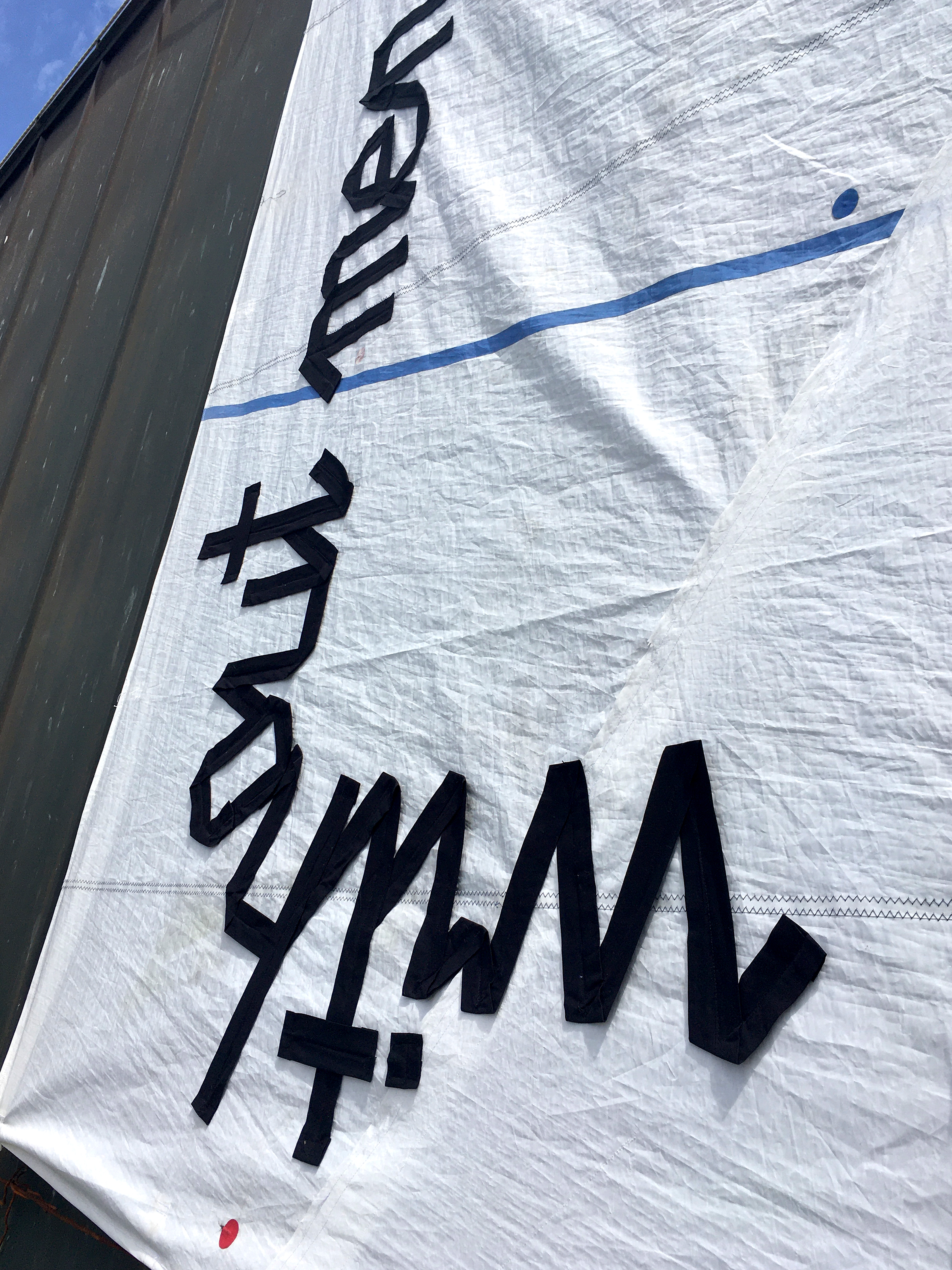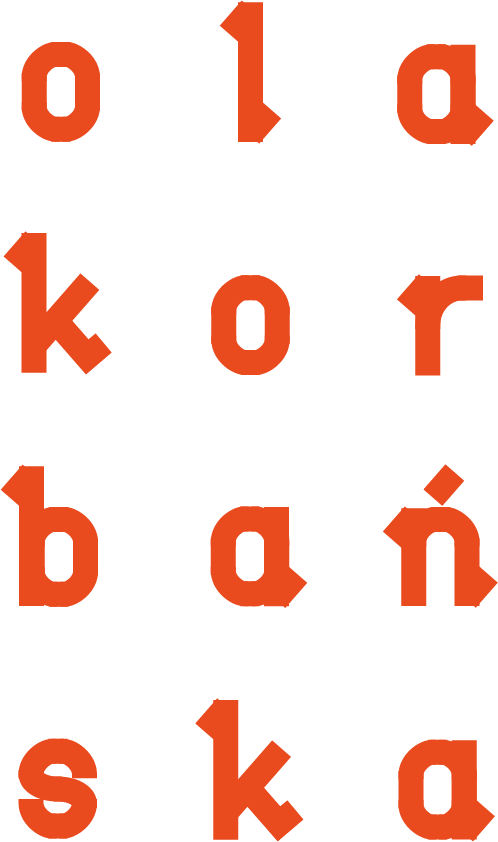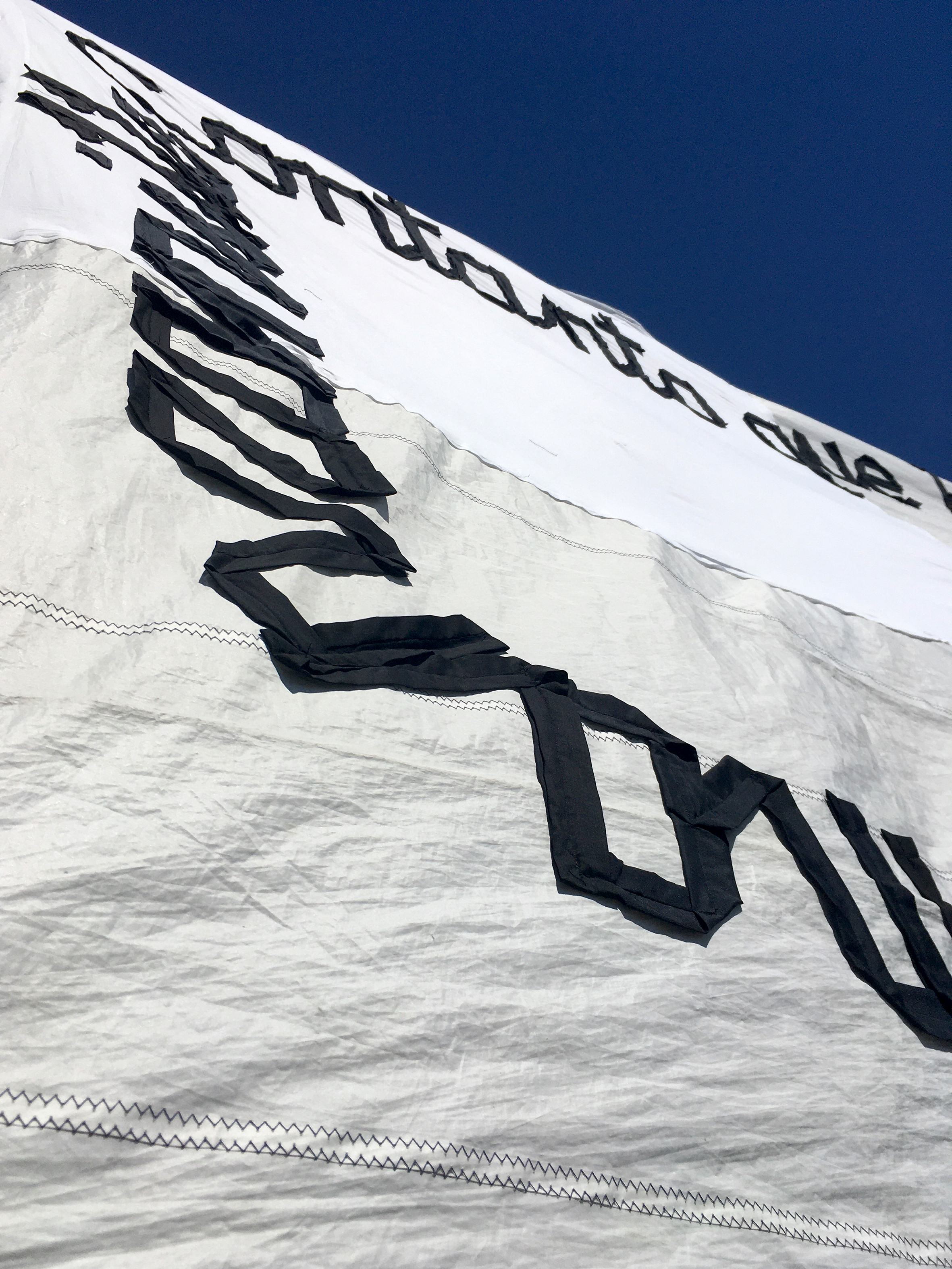THE LAUNDRESSES
2021
bed linen, table cloths, sail, textile
3,5m x 5m / 3,5m x 5m
Capitania, Aveiro, PT
Series of two pieces of large-scale banners with words in Portuguese and English: Contanto que haja roupa para lavar Vamos beber manzanilla (As long as there is laundry to be washed We shall drink manzanilla) and As long as there is laundry to make We shall do without men. These are the lines of the song Les lavandières du Portugal (Laundresses from Portugal).
Pieces were exhibited in Aveiro, Portugal, at The Capitania — the old captaincy building, a place associated with power, masculinity, and colonial past.
Project developed within the residency in AgitLab and Festival dos Canais
2021
bed linen, table cloths, sail, textile
3,5m x 5m / 3,5m x 5m
Capitania, Aveiro, PT
Series of two pieces of large-scale banners with words in Portuguese and English: Contanto que haja roupa para lavar Vamos beber manzanilla (As long as there is laundry to be washed We shall drink manzanilla) and As long as there is laundry to make We shall do without men. These are the lines of the song Les lavandières du Portugal (Laundresses from Portugal).
Pieces were exhibited in Aveiro, Portugal, at The Capitania — the old captaincy building, a place associated with power, masculinity, and colonial past.
Project developed within the residency in AgitLab and Festival dos Canais
![]()
![]()
![]()
As an activity, making laundry has a heavily feminized past. For time immemorial it was a female profession and in many southern European cities, special areas were designated for this, constituting socially important spaces for women's communities. In many languages, the word laundress exists only in female form, lacking a male counterpart.
According to the European Institute for Gender Equality, women do at least twice as much unpaid housework as men.
![]()
Some European cities tried to implement the air-drying ban, claiming that in developed, modern metropolises, laundry should be dried by the machines, not the breeze, and certainly should not be seen publicly. It became the subject of an aesthetical, ecological, but also gender debate.
Drying outside, clothes are transferred from the private sphere of the interior to the public sphere of the streets. Due to this brief but cyclical intrusion into the outside world, drying clothes could be seen as a manifesto of incessant and invisible work carried out by women, becoming, at the same time, a mark of female visibility left in the public space.







